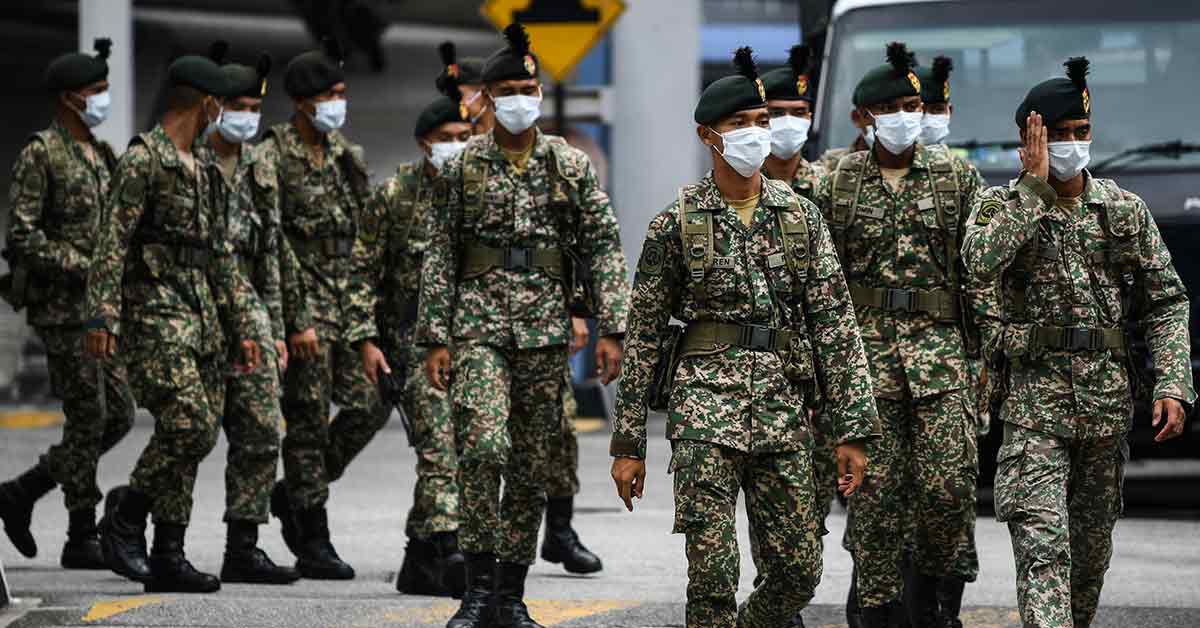Coronavirus deaths soared across Europe and the United States (US) on Sunday despite heightened restrictions, as Germany banned gatherings of more than two people and Chancellor Angela Merkel went into quarantine.
In the US, President Donald Trump ordered emergency medical stations for hotspots, hospitals scrambled to find ventilators, and a trillion-dollar proposal to rescue America's reeling economy crashed to defeat.
Germany and Greece became the latest countries to tighten curtailments on movement as the virus kept nearly a billion people indoors and intensified fears of a global recession unlike any experienced for decades.
"I can't tell you," Trump said when asked when the US economy would be reopened. Earlier, New York Mayor Bill de Blasio warned that the US was heading towards its greatest crisis since the Great Depression of the 1930s.
The death toll from the virus - which has upended lives and closed businesses and schools across the planet - surged to move than 14,300 Sunday, according to media tally.
The epicentre is firmly in Europe after shifting from China where the illness first emerged late last year.
"I'm a little upset with China. I'll be honest with you...,” Trump said referring to a lack of cooperation and information early on in the crisis.
Italy's world-topping toll from the pandemic approached 5,500 as the Mediterranean country reported another 651 deaths, a day after it overtook China for the highest number of fatalities.
Greece imposed a national lockdown and in Germany Merkel began quarantining at home after being treated by a doctor who has since tested positive for the virus.
But lockdown measures in Italy have done little to stem the outbreak and New Yorkers were finding it difficult on a spring weekend to put a stop to fun in the city that never sleeps.
'Self-destructive'
"I don't know what they're not understanding," said Governor Andrew Cuomo, complaining that parks were still full of people not respecting social-distancing orders.
"It's insensitive, it's arrogant, it's self-destructive, it's disrespectful to other people and it has to stop. This is not a joke," he pleaded.
Police patrolled the deserted streets of Rome, while checks were carried out on beaches after local officials complained people were defying orders to catch some time in the sun.
In his weekly prayer, streamed online to avoid attracting crowds, the Pope urged all Italians to follow isolation measures "for the good of us all."
Spain's prime minister said he would ask parliament to extend a 15-day state of emergency, which bars people from leaving home unless absolutely essential, until 11 April.
The country recorded close to 400 new fatalities Sunday, bringing the total to 1,720, suggesting the lockdown was failing to be effective. Opera star Placido Domingo said he had tested positive.
Residents across France, where the death toll jumped to 562, remained shut in their homes. A curfew was imposed in some regions and the mayor of Paris called for even more drastic confinement measures in a city under lockdown.
Britain inched toward similar measures as Prime Minister Boris Johnson warned the country was a couple of weeks behind registering similar numbers to Italy.
Delhi deserted
In the US, where Rand Paul became the first US senator to test positive, a Republican-proposed bill earmarking up to US$2 trillion in funding for American families, businesses and hospitals, failed to pass after receiving zero support from Democrats who said it wasn't enough.
Several European countries have already announced their own stimulus packages to stave off economic collapse.
In America, where deaths soared past 400 and cases exceeded 33,000, more than a third of residents are under various phases of lockdown, including in New York, Chicago and Los Angeles.
Mayor de Blasio said New York was 10 days away from running out of ventilators.
Trump announced he had ordered the deployment of emergency health centers with capacity of 4,000 beds to New York, California and Washington - America's worst affected states.
As the pandemic overwhelms hospitals, doctors across the world are having to quickly prioritize patients based on their chances of survival, inflicting a huge moral burden.
"We go into medicine to heal people. Not to make choices about who can live," said Philippe Devos, an anaesthesiologist in Liege, Belgium.
While the number of cases in China - which reported its first local infection in four days on Sunday - has slumped dramatically since the crisis began, there are fears in Asia of "imported" cases from other hotspots like Europe.
Thailand reported its highest daily rise in cases, taking its total to nearly 600, while Singapore, Hong Kong and Malaysia have also reported a spike after numbers had plateaued earlier.
Normally bustling streets in New Delhi and Mumbai were mostly deserted and many shops shuttered during India's one-day nationwide "self-imposed curfew."
Australia has shut its borders to foreigners and non-residents and Pakistan has suspended international flights.
Olympic postponement?
Across Africa, where healthcare systems are limited and social distancing measures are difficult in crowded cities, the new coronavirus has infected more than 1,200.
The Middle East also remains on high alert, where Iran - which suffered a major outbreak - reported 129 deaths on Sunday. It has so far refused to restrict movements.
Chile on Sunday became the latest Latin American country to restrict movement, with a night-time curfew. Ecuador, which had already imposed such a lockdown, saw its deaths double to 14, the region's highest after Brazil.
In sport, International Olympic Committee president Thomas Bach said postponing the 2020 Games was an option but that cancellation was "not on the agenda."
Accurate COVID-19 figures are difficult to obtain because many of the victims suffered from other illnesses, and infection rates are uncertain because of a lack of testing in many countries.
While the elderly and those with pre-existing medical conditions are the hardest hit by the virus, the WHO has warned that young people are also vulnerable. - AFP
